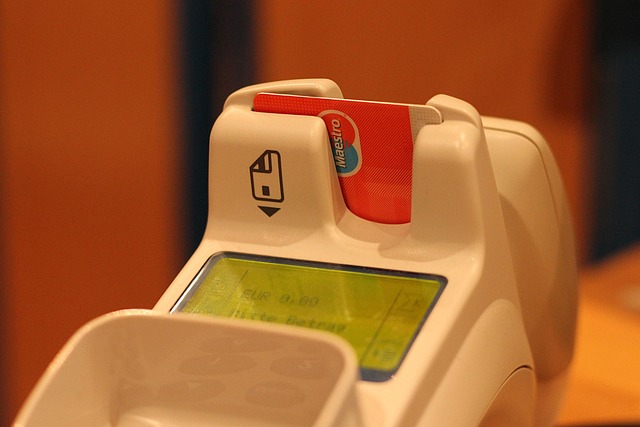Background checks play a pivotal role in the rental application process, enabling landlords to make informed decisions. These checks go beyond basic employment verification, scrutinizing rental history, credit scores, and criminal records for insights into potential tenants' reliability. By assessing financial stability and past behavior, landlords can minimize tenant defaults, property damage, and risks associated with vacant properties. While effective in identifying responsible renters, background checks must be balanced against potential discrimination and reduced tenant pool concerns. Landlords use rental history and credit checks to navigate the application process, fostering trust and a secure renting experience.
In today’s world, understanding the significance of background checks in rental applications is paramount for both landlords and tenants. This article delves into the intricate details of how these verifications, including credit and rental history checks, influence lease agreements. By exploring the benefits and concerns surrounding tenant background checks, we aim to guide you through the rental application process, ensuring a comprehensive grasp of your rights and responsibilities.
- Understanding Background Checks in Rental Applications
- The Role of Credit and Rental History Checks
- How Tenant Background Checks Affect Lease Agreements
- Uncovering the Benefits and Concerns of Background Checks
- Navigating the Rental Application Process with Checks
Understanding Background Checks in Rental Applications

Background checks play a pivotal role in the rental application process, offering landlords valuable insights into potential tenants’ pasts. These checks go beyond verifying basic information like employment and income, delving into rental history, credit scores, and sometimes even criminal records. By conducting thorough tenant background checks, landlords can make informed decisions about who they rent to, thereby mitigating risks associated with empty properties and ensuring a reliable income stream.
The impact of these checks on the renting process is profound. They provide a layer of protection for property owners by reducing the likelihood of tenants defaulting on rent or causing damage to the property. Credit checks and rental history verifications are common practices, as they help assess financial responsibility and tenant reliability. This data-driven approach streamlines the selection process, fostering healthier relationships between landlords and tenants based on transparency and trust.
The Role of Credit and Rental History Checks

When considering a new tenant for a property, landlords often employ background checks as a critical component of the rental application process. These checks play a pivotal role in evaluating potential tenants by providing insights into their financial and rental histories. Credit and rental history checks are two essential aspects that contribute to this assessment.
Credit checks offer a glimpse into a candidate’s financial reliability and responsibility. It helps landlords determine if the tenant can afford the rent, has a stable income, and manages debt effectively. On the other hand, rental history checks reveal patterns in previous tenancies, including timely rent payments, duration of stay, and any issues or complaints recorded. This information is invaluable for predicting how well a prospective tenant will fit into the rental agreement and maintain the property.
How Tenant Background Checks Affect Lease Agreements

Background checks play a pivotal role in shaping lease agreements between landlords and prospective tenants. These thorough evaluations go beyond what’s stated on a rental application, delving into a tenant’s past to ensure they are a suitable fit for the property. By conducting comprehensive background checks, including rental history and credit checks, landlords gain valuable insights into potential residents’ financial stability and previous tenancy records.
The impact of these checks is significant. They help identify responsible renters who have consistently maintained good rental standing in the past. Conversely, they also uncover red flags like habitual late payments or property damage, enabling landlords to make informed decisions. This process ultimately protects both parties; it safeguards landlords from tenant-related issues and ensures tenants find trustworthy and safe accommodations that align with their needs.
Uncovering the Benefits and Concerns of Background Checks

Background checks play a pivotal role in the rental application process, offering both benefits and concerns for landlords and tenants alike. On one hand, these checks provide invaluable insights into a potential tenant’s past, helping landlords make informed decisions about who they rent to. Rental history checks and credit checks renting are effective tools to assess financial stability and responsible behavior, which can mitigate risks associated with vacant properties. Tenant background checks can reveal important information about an individual’s criminal record, employment history, and previous landlord references, ensuring a safer living environment for current residents.
However, there are valid concerns surrounding the impact of background checks on renting. Some worry about potential discrimination based on minor infractions or outdated information. The rental application process should strike a balance between thorough vetting and fair assessment to avoid unfair barriers to housing. Additionally, not all applicants have a clean record, and strict background check policies may discourage honest individuals from applying, leading to a smaller pool of suitable tenants. Therefore, landlords must carefully consider the weight given to background checks in their overall screening strategy.
Navigating the Rental Application Process with Checks

Navigating the Rental Application Process with Checks
When it comes to renting a property, landlords and property managers often employ background checks as part of their rental application process. These checks play a significant role in evaluating potential tenants, going beyond simply looking at their credit score or rental history. Landlords use tenant background checks to gauge an applicant’s reliability, employment status, and even criminal record. This comprehensive assessment helps ensure that the property is in safe hands and minimizes the risk of tenancy issues down the line.
The impact of background checks on lease agreements cannot be overstated. They provide valuable insights into a prospective tenant’s financial stability and personal history, enabling landlords to make informed decisions. For instance, credit checks renting reveals payment patterns while rental history checks offer a glimpse into previous living arrangements. This information is crucial in determining whether a tenant is likely to fulfill their lease obligations responsibly.






